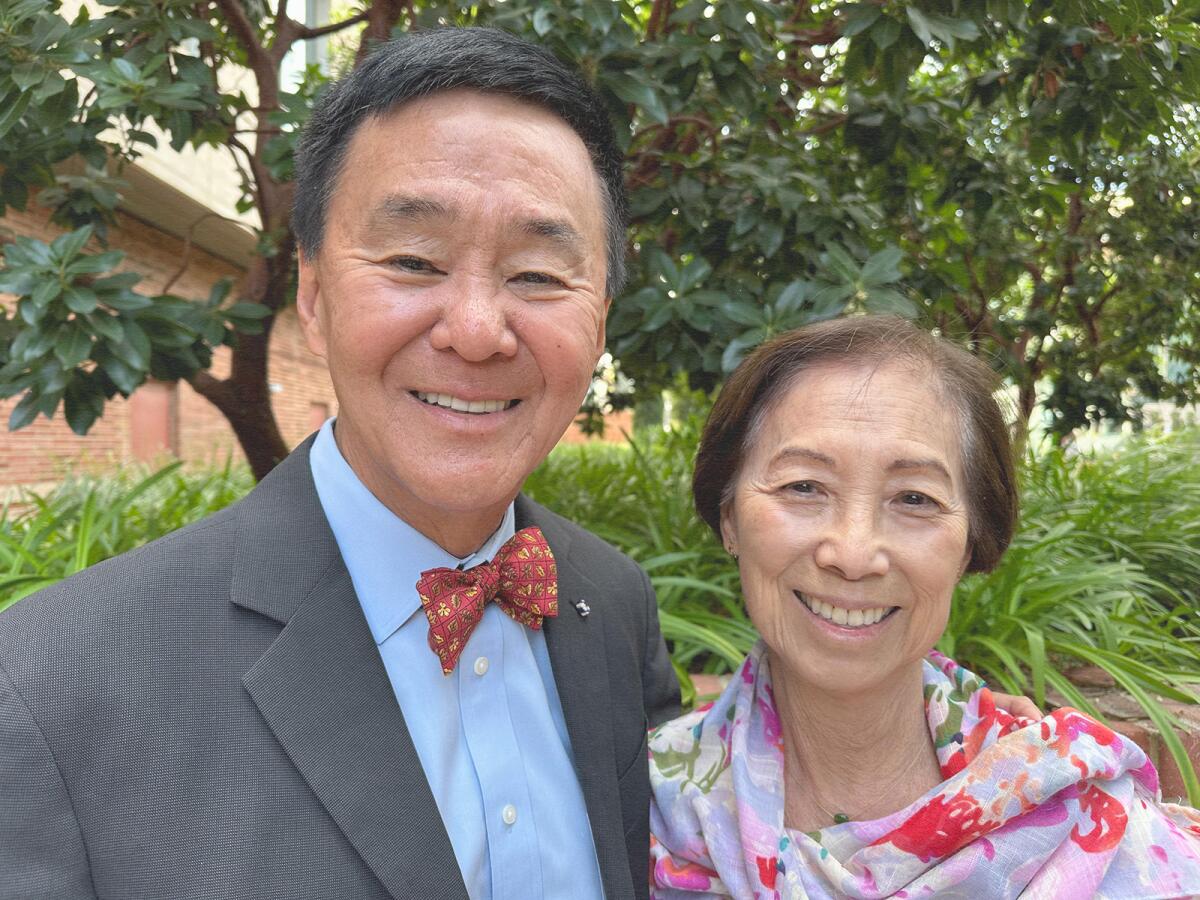More than five decades ago, Morgan Chu was taught a version of American history that all but ignored the experiences of Asian Americans like him.
Chu, an attorney who grew up in New York and moved to Los Angeles to attend UCLA, never learned that the U.S. government barred Chinese people from immigrating to the United States in the 19th century and incarcerated tens of thousands of American citizens of Japanese ancestry without charges during World War II.
He was not taught about state laws in the early 1900s that prevented Asians from owning land or, even earlier, marrying outside their race. Nor did any of his classes recognize the contributions Asian Americans have made in shaping the nation beyond a scant mention of Chinese laborers who helped build the transcontinental railroad.
But in 1969, Chu and his wife, Helen, then a fellow Bruin, helped push UCLA to create some of the first ethnic studies programs in the nation, after joining scores of other students in protests, rallies and meetings.
Now, 55 years later, the Chus are doubling down on their commitment with a $10-million gift to create endowed chairs for Asian American, African American, Chicano and American Indian studies centers housed in the UCLA Institute of American Cultures. The gift, announced Monday, will also fund research projects and programming across the institute — cementing UCLA’s role as a national leader in this academic field.

The support for ethnic studies comes at a fraught political moment as attacks escalate against the field — including efforts by some California school districts and conservative states such as Texas and Florida to control how race and racism are taught in schools. Attacks have focused on “critical race theory” — a university-level academic framework that seeks to examine how racial inequality and racism are historically embedded in U.S. legal systems, policies and institutions. The theory, and ethnic studies, have been cast by some as an effort to portray white people as racist oppressors.
California is the first state in the nation to require an ethnic studies class for high school graduation under legislation signed into law in 2021. The California Community Colleges and California State University systems also require students to take an ethnic studies course for an associate and bachelor’s degree, respectively.
The University of California has been enmeshed in a protracted review process since 2020 over whether to require ethnic studies for admission and what the course content should include. UC requires all undergraduates to complete a course in “American Histories and Institutions,” which can be ethnic studies, economy, history, political science or related disciplines.
Some critics have urged UC to reject any ethnic studies admission requirement in part because they fear how Israel would be discussed in such courses — particularly if critiques of colonialism and imperialism against marginalized communities include the plight of Palestinians.
The Chus stress that their gift — the largest ever received by the institute — was not prompted by the politics of the moment. Morgan Chu said the couple want to support and sustain a field of studies he likens to a “rainbow with contrasting colors and different points of view” that can help deepen understanding and bridge divides among people.
“It’s just a way to teach everyone about the richness of the history and background of all cultures,” said Chu, who became a prominent litigation attorney after earning three degrees, including a doctorate at UCLA, a master’s degree at Yale and a law degree at Harvard. Helen Chu enjoyed a long career as a public school teacher after her UCLA graduation.
UCLA Chancellor Gene Block said the gift will help the campus advance its scholarship and teaching in the field.
“UCLA has long been at the forefront of the examination of the histories, cultures, contributions and experiences of different racial and ethnic groups in the United States,” he said in a statement. “The Chus’ investment will allow us to deepen the impact of this essential work.”
Shannon Speed, the director of UCLA’s American Indian Studies Center, called the Chu gift a “game changer” that would ensure the survival of ethnic studies at a time of fiscal challenges in higher education and political attacks against the field.
The gift is particularly powerful because it supports all four ethnic studies centers at the institute, said Celia Lacayo, assistant director of the Chicano Studies Research Center.
Read the full article at https://www.latimes.com/california/story/2024-02-05/ucla-expands-ethnic-studies-amid-fraught-politics